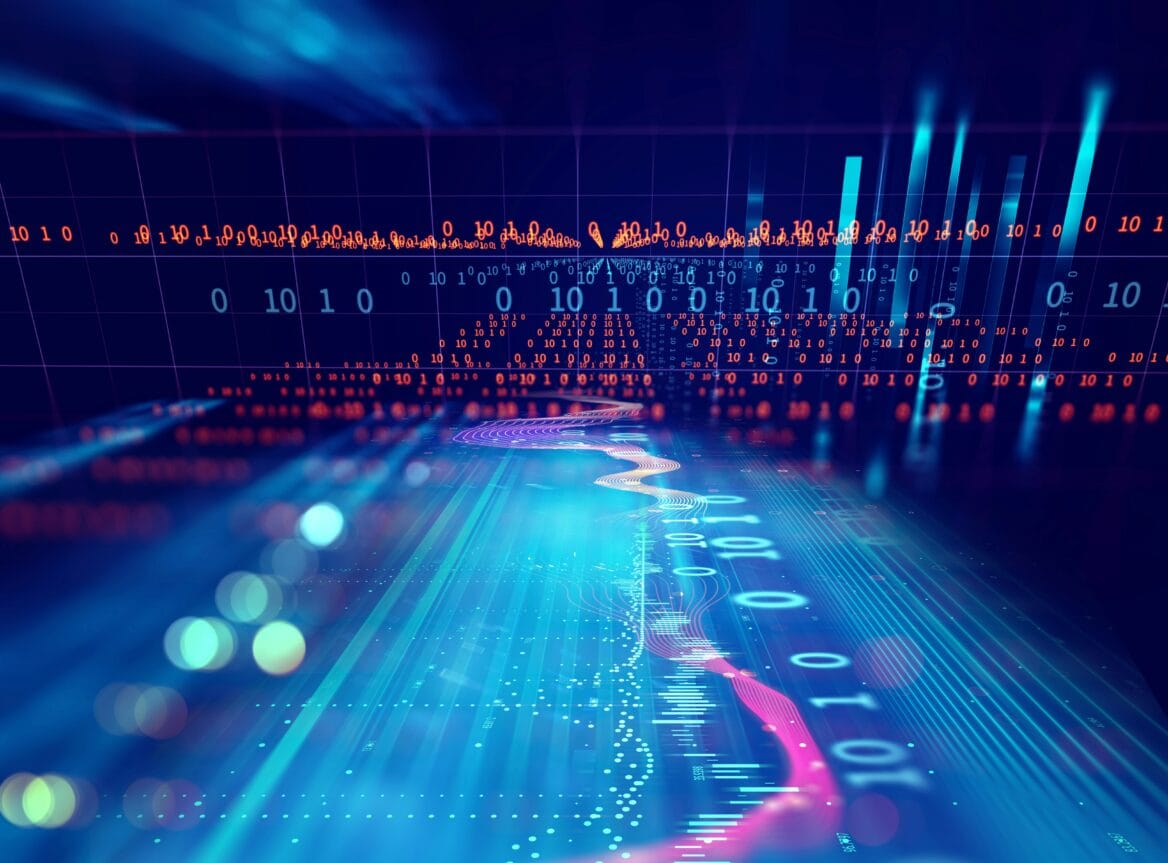Cybersecurity continues to evolve, and businesses must stay informed about the more sophisticated challenges they now face. As we observe Cybersecurity Awareness Month, it’s an opportunity to learn about these developments and understand the tools available to address them. In 2023, we saw cybersecurity risks escalate, with new forms of attacks emerging that are more advanced than what many traditional defenses can handle.
As a result, global cybercrime costs are projected to reach $10.5 trillion by 2025.
Businesses are now facing a new breed of cyber threats powered by artificial intelligence (AI) and machine learning (ML). As these technologies evolve, so do the methods and tactics of cybercriminals.
AI in Cybercrime: How Criminals are Leveraging Technology
In recent years, the cyber threat landscape has transformed dramatically, largely driven by advancements in artificial intelligence (AI) and machine learning (ML). In fact, 75% of cybersecurity specialists say that AI use in cyberattacks is on the rise. Cybercriminals have moved beyond traditional methods like basic phishing or brute-force attacks, deploying more sophisticated strategies that make today’s threats more dangerous than ever before. AI-powered cyberattacks are evolving quickly, and it’s important for businesses to understand how these attacks function to better prepare their defenses.
Ransomware continues to be one of the most pervasive threats, with a 13% rise in 2023, impacting over 72% of organizations globally. AI’s role in these attacks is particularly evident in AI-driven ransomware, where machine learning algorithms identify and prioritize the most valuable data for encryption, severely limiting recovery options for affected organizations.
Phishing attacks have also become more sophisticated due to AI, with a 58% increase in AI-powered phishing emails in the past year. AI tools like WormGPT—a malicious variant of OpenAI’s GPT-3—are now being used to generate phishing emails, malware, and other exploitative tools at scale. By analyzing data from social media profiles and previous communications, these tools craft convincing, hyper-personalized messages known as spear phishing attacks, which are harder to detect and more effective.
Another emerging AI-driven threat is deepfake technology, which uses AI to manipulate audio, video, or images to mimic real people. Deepfakes are increasingly being used in corporate espionage and fraud, with projected losses related to deepfake scams expected to reach $40 billion by 2027.
As AI-driven attacks become more complex, so do the techniques used to evade detection. AI enables malware to continuously adapt to defense mechanisms, keeping security systems one step behind. This allows AI-powered malware to hide within networks for extended periods, analyze patterns, and launch attacks at optimal moments, resulting in prolonged and more damaging breaches.
Finally, AI-powered attack automation is reshaping the cyber threat landscape, allowing attackers to use AI to automate various stages of their operations. This automation reduces the need for manual intervention, enabling attackers to target multiple victims simultaneously and more efficiently.
The rise of AI in cybercrime presents unprecedented challenges. Cybercriminals are using AI not only to enhance the speed and scale of attacks but also to improve their ability to evade detection. Defending against these evolving threats will require businesses to adopt equally sophisticated strategies, leveraging AI for defense as well.
AI in Cyber Defense: Turning the Tables on Attackers
While AI has undeniably empowered cybercriminals, it is also a critical tool for defending against these new threats. In fact, AI and machine learning are becoming indispensable in modern cybersecurity strategies. Businesses that are serious about protecting their data and assets are increasingly turning to AI-powered defenses to stay ahead of attackers. 69% of the 3,800 senior executives who were surveyed by PwC for their 2024 Global Digital Trust Insights Report said their organizations plan to use GenAI for cyber defense in the next 12 months, while 47% already use it for cyber risk detection and mitigation.
One of the key advantages of AI in cybersecurity is its ability to analyze massive amounts of data in real-time. Traditional security systems often struggle to keep up with the sheer volume of data generated by modern networks. AI, on the other hand, can rapidly process this data, identifying patterns and anomalies that may indicate a breach. This allows security teams to respond to threats faster and more effectively.
Moreover, behavioral analytics—a form of AI-based detection—helps cybersecurity systems spot unusual patterns in user behavior that may indicate a compromised account or insider threat. For example, if an employee’s login credentials are suddenly being used from a different country or during unusual hours, the system can flag this activity for further investigation.
Another critical application of AI in cybersecurity is predictive threat detection. Machine learning models are now being used to predict future attacks based on historical data. These models analyze past breaches and identify patterns that can help businesses prevent similar attacks in the future. This proactive approach is a game-changer in the fight against cybercrime, as it allows organizations to strengthen their defenses before an attack even occurs.
For businesses, AI can also be a powerful tool in automated incident response. When a threat is detected, AI systems can take immediate action, such as isolating infected systems, blocking malicious IP addresses, or even rolling back affected files to a pre-attack state. This level of automation is essential in a world where cyberattacks happen at lightning speed, often outside of normal business hours.
Why Businesses Need a Cybersecurity Partner More Than Ever
In the face of these evolving threats, businesses can no longer solely rely on traditional cybersecurity measures. The speed and complexity of modern cyberattacks, particularly those involving AI, require a more proactive and comprehensive approach to security. This is where a dedicated cybersecurity partner can make all the difference.
Many businesses lack the resources or expertise to manage the complexity of AI-driven threats on their own. According to a 2023 McKinsey survey, 53% of companies acknowledge that AI-related cybersecurity risks are a significant concern, yet only 38% are actively working to mitigate them. This gap between awareness and action is a vulnerability that attackers are more than willing to exploit.
This disparity underscores the need for expert guidance and robust cybersecurity partnerships. Here’s why partnering with a cybersecurity expert like 99Ten is crucial in today’s threat landscape:
- Access to Cutting-Edge Technology: Cybersecurity firms invest heavily in the latest AI and ML technologies, providing their clients with defenses that may be out of reach for individual businesses.
- 24/7 Monitoring and Rapid Response: Cyber attacks don’t adhere to business hours. A dedicated cybersecurity partner provides round-the-clock monitoring and can respond to threats in real-time, regardless of when they occur.
- Expertise and Experience: Cybersecurity professionals stay abreast of the latest threats and defense strategies. Their experience across multiple clients and industries provides invaluable insights and best practices.
- Customized Security Strategies: Every business has unique vulnerabilities and requirements. A cybersecurity partner can develop tailored strategies that address specific needs and risk profiles.
- Continuous Adaptation: As threats evolve, so must defenses. A good cybersecurity partner continuously updates and refines their approach, ensuring that defenses remain effective against emerging threats.
By leveraging cutting-edge AI technologies, a cybersecurity partner can help businesses detect threats in real-time, respond to incidents swiftly, and continuously improve their defenses.
The Future of Cybersecurity: AI’s Role in Defense and Offense
Looking ahead, AI is set to play an even larger role in both cyberattacks and defenses. On the offensive side, we can expect AI-powered attacks to become more autonomous and harder to detect. Attackers will likely continue to use machine learning algorithms to refine their tactics, creating more sophisticated and targeted attacks.
On the defensive side, AI will become an integral part of every cybersecurity strategy. From automated incident response to predictive analytics, AI will help businesses stay one step ahead of attackers. However, businesses must remain vigilant and continuously adapt their defenses to keep up with the rapidly evolving threat landscape.
Here are some trends to look out for in the near future:
- Autonomous Cyber Defense Systems: We’re moving towards AI systems that can not only detect and respond to threats but also proactively hunt for vulnerabilities and patch them without human intervention.
- AI vs. AI: As attackers refine their AI tools, we’ll likely see more instances of AI-powered attacks being countered by AI defense systems, leading to a technological arms race in the cybersecurity domain.
- Quantum Computing and Cybersecurity: The advent of quantum computing will bring both new threats and new defensive capabilities. AI will be crucial in navigating this complex landscape, potentially revolutionizing encryption and threat detection methods.
- Regulatory Challenges: As AI becomes more prevalent in cybersecurity, we can expect increased regulatory scrutiny and new compliance requirements for AI-driven security systems. Businesses will need to stay informed and adaptable to navigate this evolving regulatory environment.
The Time to Act is Now
As we observe Cybersecurity Awareness Month, the current landscape of digital threats sends a clear and urgent message: the integration of AI into both attack and defense strategies is not just a trend—it’s the new reality. The latest developments in cyber threats highlight the importance of evolving cybersecurity defenses. By staying proactive and informed, businesses can stay resilient in the face of these challenges.
However, with great challenges come great opportunities. By embracing AI-driven cybersecurity solutions and partnering with experts, businesses can not only defend against current threats but also position themselves to face the challenges of tomorrow. In the realm of digital security, standing still is equivalent to moving backward. The time to act is now.
Taking proactive steps to protect your business from next-generation cyberattacks is no longer optional—it’s a necessity for survival in our increasingly digital world. This means:
- Investing in AI-powered cybersecurity solutions that can keep pace with evolving threats
- Partnering with experts who understand the complex and ever-changing threat landscape
- Committing to a proactive approach to digital security that anticipates and prevents attacks before they occur
By partnering with a trusted cybersecurity expert like 99Ten, you ensure that your business is equipped to face the challenges of tomorrow. Our advanced AI-powered solutions, continuous monitoring, and expert guidance provide the peace of mind you need to focus on what you do best—growing your organization.Don’t wait for an attack to happen. Your business’s future may depend on the actions you take today. As a technology partner, we help companies and nonprofits leverage the power of AI to secure digital assets and stay ahead of next-generation cyber threats. And it all starts with a comprehensive cybersecurity assessment by our team of experts. You can find out more here: https://99ten.com/discovery

